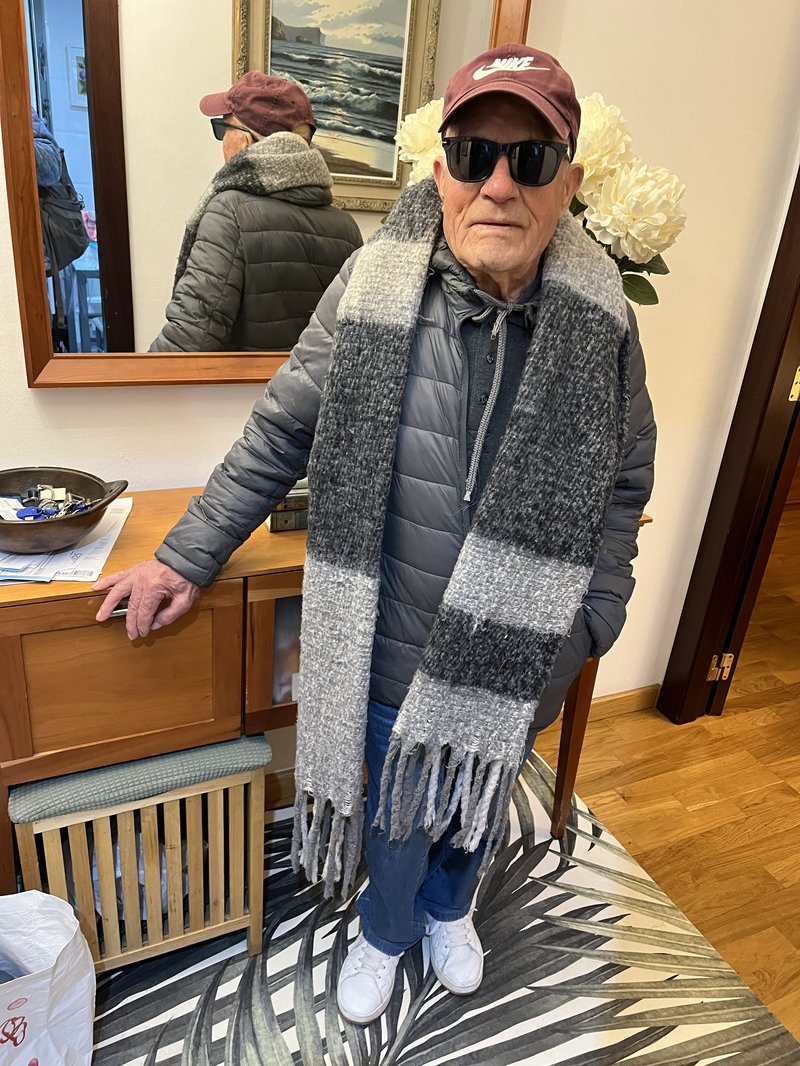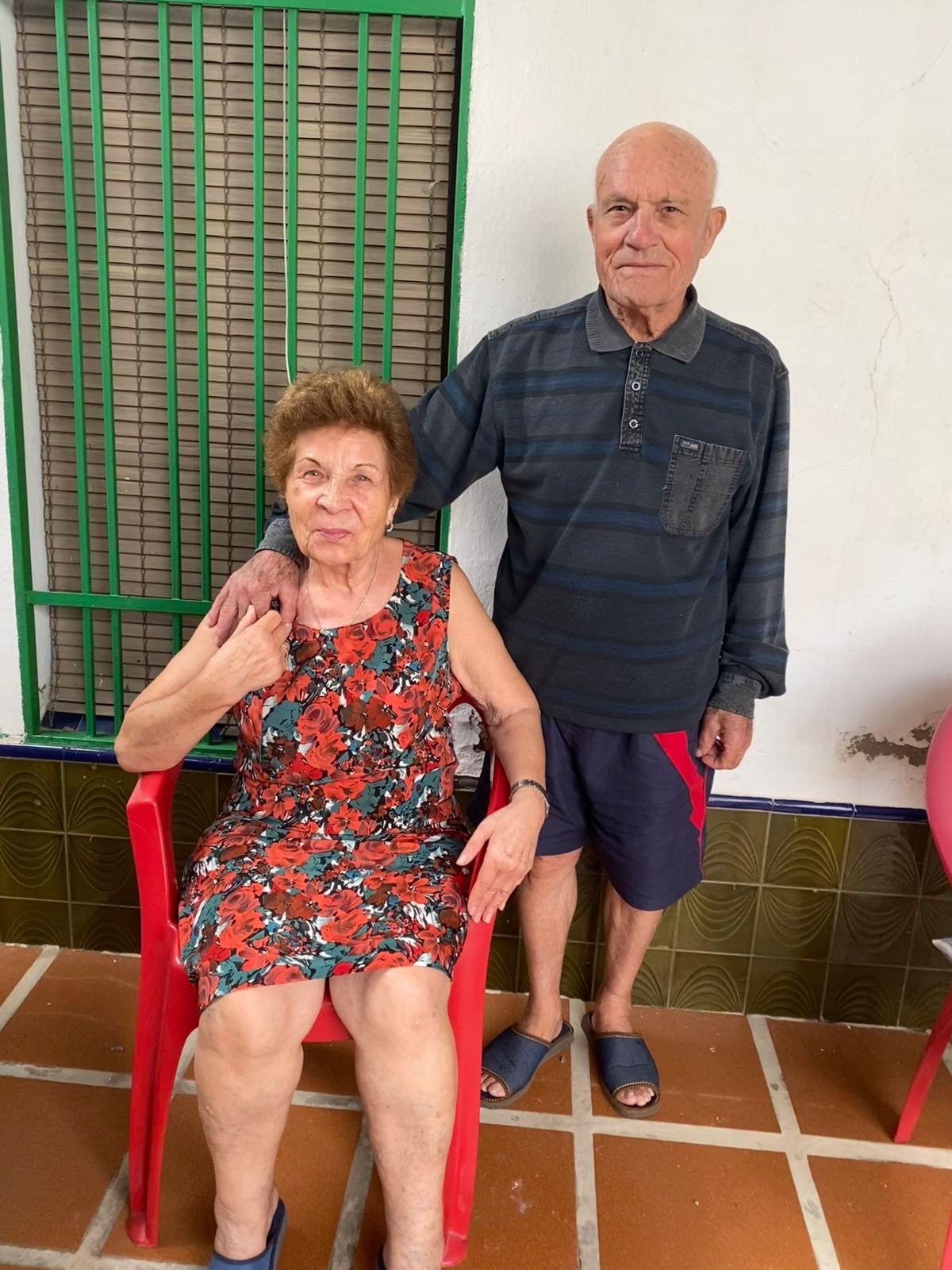Antonio
An 88 year old man named Antonio had a stroke this morning. I am hopeful he will recover, but I wanted to write a few words about Antonio anyways. He’s a man worth writing a few words about, as most men are to the people that care about them. Antonio Barroso is my girlfriend Maria’s maternal grandfather. We get along very well. For some reason I feel confident messing with him. Stealing his hat, rubbing his head, asking him silly questions. And I guess that makes him feel comfortable, because he seems to joke around with me a lot as well. I probably understand about half of the things he says. He frequently speaks in canned phrases – rhymes and sayings that even his family often struggles to explain. Maria’s dad told me at some point when my Spanish was weaker that translating what Antonio says is difficult, because you first have to translate his regional accent (Extremeño) into Spanish, and then Spanish to English. “Adelante como los de Alicante, porque los de Alicante son siempre adelante”. Or “vamos a ver como canta Miguel, si canta mal o canta bien”. Often they seem made up on the spot. We were watching a track and field championship yesterday and one of the Spanish women had the last name “Corbacho.” Antonio chimed in “Corbacho con una cara de borracho.” Always with a cheeky grin on his face. All that is a long winded way to say that in spite of our language difficulties, we get along well. He seems to like telling me stories. And based on those stories, I’ve come to learn enough about the man to recount some of his story.
They aren’t sure when exactly he was born because there was no birth certificate, so they picked a day that seemed to make sense. What we do know is that he was born and raised in a small town called Oliva de la Frontera, in rural southwestern Spain. He never went to school and the limited literacy he has was learned very late in life. His first job came at age 7, helping build walls and bridges around his hometown. For his first 38 years, his country was ruled by a fascist dictator. He was poor, and most around him were poor, and he remembers the state police bullying and beating the poor for no reason. In the 40’s in his village, when he was still just a boy, poverty and famine hit hard. There wasn’t work and there wasn’t food. He’s a foot smaller than his granddaughters because there just wasn’t enough to eat growing up. I learned the other day that he has an aversion to figs because of an early year where figs were the only thing they had to eat. His wife of more than 60 years thinks bread goes with everything, even fruit, because bread was the one thing they always had available growing up.
In some ways, his story shares more similarity with Steinbeck’s Joad family than it does with mine. In his 20s, him and his kin moved across their country as a clan. Brothers, sisters, parents all travelling as a group in search of work. They came across the country by the thousands, leaving behind what they had for a better life. Franco, the dictator, had chosen specific regions in the north – Bilbao and Barcelona, to invest in. He, like so many of his peers, spent a brief stint in Bilbao before settling outside of Barcelona, finding work in construction. Him and his peers built from the ground up the towns that their people were quickly occupying. So many of them came to Barcelona in particular that they were given a name – Xarnegos they were called. Multi-generational, uprooted families from rural communities in the south and west. Uneducated brothers and brothers-in-law, from tiny, far off towns building a new life in a new place. Honestly this doesn’t seem like a story that should end well, but somehow in his case, and in the case of many of his peers, it has. He’s been retired for more than 20 years. His lifestyle hasn’t changed much – he has never been outside the country, never eats out, rarely even turns on the lights unless it’s absolutely necessary. And yet, he and his wife now own two apartments, and they split their years between the two. His children are better educated than he is, and their children better educated than they are. There’s reason for optimism about his ability to recover. He’s incredibly healthy for 88 – we swam in the ocean and he beat us all in cards the day before his stroke. He still goes for walks down to the bocce courts to watch his friends compete. Spending time with him is entirely different from spending time with my Grandpa. With Antonio, we aren’t going to debate politics or talk about books. He isn’t going to question what I do for work, and extracting details of his memories of Franco, of his childhood, is often fruitless. And yet, there’s a strange wisdom about his simplicity. He has been with the same woman for more than 65 years. He gives her several kisses before they sleep and several when they wake up. I once asked him if he believed in God, and he told me he believes in the moon and stars. I asked him the purpose of life and he said it’s to do what you can. Regardless of what the next weeks and years have in store for him, he’s a special man from a different time and place, and I feel lucky I’ve gotten to know him.

Thanks for reading!
